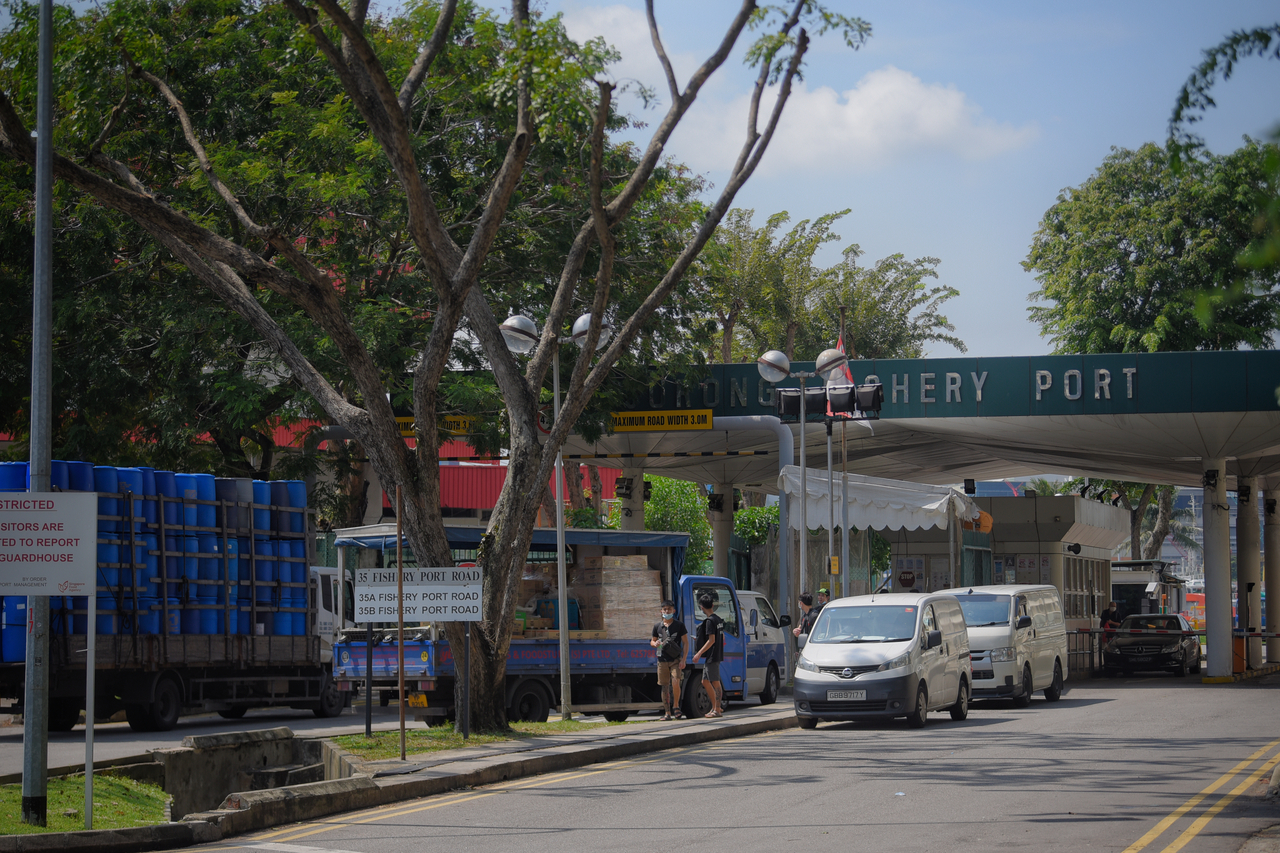Jurong Fishery Port situation stabilising; more cases isolated before turning Covid-19 positive: Ong Ye Kung
Sign up now: Get ST's newsletters delivered to your inbox

There were 792 Covid-19 cases linked to a cluster at Jurong Fishery Port as at July 25, 2021.
ST PHOTO: MARK CHEONG
Follow topic:
SINGAPORE - Over the past few days, there have been more than 100 Covid-19 infections a day in Singapore, including those linked to the Jurong Fishery Port cluster. But the situation is stabilising, with the number of cases falling, Health Minister Ong Ye Kung said in a ministerial statement in Parliament on Monday (July 26).
The percentage of cases isolated or quarantined before turning Covid-19 positive is also on an upward trend - a positive sign.
On July 19, there were 163 cases, with only 27 per cent isolated before detection. Lately, this hovers around 40 per cent, Mr Ong said.
This percentage can be further raised through contact tracing and testing, he added.
The objective is not to stop transmissions completely, the minister said. That is not possible, given how transmissible the Delta variant is, and with Singapore's reopening, he added.
"The only possible way to eradicate infections is to go into another hard circuit breaker... But we don't want to be locked up. Even if we do, once we open up, cases will rise again", Mr Ong said.
Eradication is not possible or sustainable - instead, vaccination holds the key to Singapore's transition to living with the virus as an endemic disease, he added.
The cluster at Jurong Fishery Port, which had swelled to 792 cases as at Sunday (July 25), is still growing, but at a slower rate, Mr Ong said.
Over the past three days, daily infection numbers for the cluster were at 79, 79 and 46.
The cluster was first discovered on July 16, with multiple infections detected at the port, as well as at Hong Lim Market and Food Centre.
This involved fishmongers and stall assistants, who unwittingly transmitted the virus to more people in the markets and communities where they ply their trade.
The Ministry of Health, with the help of the National Environment Agency, took immediate steps to prevent the spread of the virus, Mr Ong said.
The port is closed from July 17 to July 31 to break the chain of Covid-19 transmission and to enable deep cleaning. Testing has also been done.
Of the 1,548 people tested, 43 were found to be positive, indicating that significant community transmission had most likely already silently occurred in the days prior to July 18, Mr Ong said.
With markets frequented by wide segments of the public, particularly seniors - of whom one quarter are still unvaccinated - there was a risk of infections rising uncontrollably. This would have resulted in more cases of severe illness and even deaths among the vulnerable senior population.
Hence, the multi-ministry task force on Covid-19 decided to pre-emptively dial back to phase two (heightened alert), Mr Ong said. "We did this to buy ourselves precious time to get more of our population vaccinated."
The minister said that while preliminary phylogenetic findings suggest that the Jurong Fishery Port cluster as well as a KTV one were driven by the Delta variant, this is distinct from the Delta variant that infected people in the clusters at Tan Tock Seng Hospital and Changi Airport previously.
Instead, the recent clusters have a Delta strain that is closer to what has been detected in imported cases from Singapore's immediate region.

